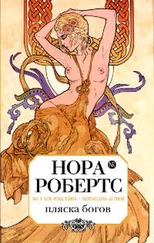Nora Roberts
Midnight Bayou
For Leslie Gelbman, a woman who understands the value of time
God stands winding His lonely horn,
And time and the world are ever in flight;
And love is less kind than the gray twilight,
And hope is less dear than the dew of the morn.
William Butler Yeats
Death, with all its cruel beauty, lived in the bayou. Its shadows ran deep. Cloaked by them, a whisper in the marsh grass or rushes, in the tangled trap of the kudzu, meant life, or fresh death. Its breath was thick and green, and its eyes gleamed yellow in the dark.
Silent as a snake, its river swam a sinuous line-black water under a fat white moon where the cypress knees broke the surface like bones piercing skin.
Through the dark, moon-dappled water, the long, knobby length of an alligator carved with barely a ripple. Like a secret, its threat was silent. When it struck, its tail whipping a triumphant slice through the water, when it clamped the unwary muskrat in its killing jaws, the bayou echoed with a single short scream.
And the gator sank deep to the muddy bottom with its prey.
Others had known the cruel, silent depths of that river. Knew, even in the vicious summer heat, it was cold, cold.
Vast with secrets, the bayou was never quite still. In the night, under a high hunter's moon, death was busy. Mosquitoes, voracious vampires of the swamp, whined in a jubilant cloud of greed. Players of the marsh music, they blended with the buzzes, hums and drips that were punctuated by the shocked squeals of the hunted.
In the high limbs of a live oak, shadowed by moss and leaves, an owl hooted its two mournful notes. Alerted, a marsh rabbit ran for his life.
A breeze stirred the air, then was gone, like the single sigh of a ghost.
The owl swooped from its perch with a swift spread of wings.
Near the river, while the owl dived and the rabbit died, an old gray house with a swaying dock slept in shadows. Beyond, rising over a long, lush spread of grass, a great white manor stood watchful in the moonlight.
Between them, teeming with life, vigorous with death, the bayou laid its line.
Manet Hall, Louisiana
December 30, 1899
The baby was crying. Abigail heard it in dreams, the soft, unsettled whimper, the stirring of tiny limbs under soft blankets. She felt the first pangs of hunger, a yearning in the belly, almost as if the child were still inside her. Her milk came down before she was fully awake.
She rose quickly and without fuss. It gave her such pleasure-that overfull sensation in her breasts, the tenderness of them. The purpose of them. Her baby needed and she would provide.
She crossed to the recamier, lifted the white robe draped over its back. She drew in the scent of the hothouse lilies-her favorite-spearing out of a crystal vase that had been a wedding present.
Before Lucian, she'd been content to tuck wildflowers into bottles.
If Lucian had been home, he would have woken as well. Though she would have smiled, have stroked a hand over his silky blond hair as she told him to stay, to sleep, he would have wandered up to the nursery before she'd finished Marie Rose's midnight feeding.
She missed him-another ache in the belly. But as she slipped into her night wrapper, she remembered he would be back the next day. She would start watching for him in the morning, waiting to see him come galloping down the allйe of oaks.
No matter what anyone thought or said, she would run out to meet him. Her heart would leap, oh, it always leaped, when he sprang down from his horse and lifted her off her feet into his arms.
And at the New Year's ball, they would dance.
She hummed to herself as she lit a candle, shielding it with her hand as she moved to the bedroom door, out into the corridor of the great house where she had once been servant and was now, well, if not daughter of the house at least the wife of its son.
The nursery was on the third floor of the family wing. That was a battle she'd fought with Lucian's mother, and lost. Josephine Manet had definite rules about behavior, domestic arrangements, traditions. Madame Josephine, Abigail thought as she moved quickly and quietly past the other bedroom doors, had definite ideas on everything. Certainly that a three-month-old baby belonged in the nursery, under the care of a nursemaid, and not in a cradle tucked into the corner of her parents' bedroom.
Candlelight flickered and flew against the walls as Abigail climbed the narrowing stairs. At least she'd managed to keep Marie Rose with her for six weeks. And had used the cradle that was part of her own family's traditions. It had been carved by her grand-pиre. Her own mother had slept in it, then had tucked Abigail in it seventeen years later.
Marie Rose had spent her first nights in that old cradle, a tiny angel with her doting and nervous parents close at hand.
Her daughter would respect her father's family and their ways. But Abigail was determined that her child would also respect her mother's family, and learn their ways.
Josephine had complained about the baby, about the homemade cradle, so constantly that she and Lucian had given in. It was, Lucian said, the way water wears at rock. It never ceases, so the rock gives way or wears down.
The baby spent her nights in the nursery now, in the crib made in France, where Manet babies had slept for a century.
It was a proper if not cozy arrangement, Abby comforted herself. Her petite Rose was a Manet. She would be a lady.
And as Madame Josephine had pointed out, again and again, other members of the household were not to have their sleep disturbed by fretful cries. However such matters were done in the bayou, here in Manet Hall, children were tended in the nursery.
How her lips curled when she said it. Bayou –as if it were a word to be spoken only in brothels and bars.
It didn't matter that Madame Josephine hated her, that Monsieur Henri ignored her. It didn't matter that Julian looked at her the way no man should look at his brother's wife.
Lucian loved her.
Nor did it matter that Marie Rose slept in the nursery. Whether they were separated by a floor or a continent, she felt Marie Rose's needs as she felt her own. The bond was so strong, so true, it could never be broken.
Madame Josephine may win battles, but Abigail knew she herself had won the war. She had Lucian and Marie Rose.
There were candles glowing in the nursery. Claudine, the nursemaid, didn't trust the gaslight. She already held Marie Rose and was trying to quiet her with a sugar tit, but the baby's fists were shaking, little balls of rage.
"Such a temper she has." Abigail set the candle down and was laughing as she crossed the room, her arms already outstretched.
"Knows what she wants, and when she wants it." Claudine, a pretty Cajun with sleepy dark eyes, gave the baby a quick cuddle, then passed her off. "She hardly made a fuss yet. Don't know how you hear her way off downstairs.”
"I hear her in my heart. There now, bйbй. Maman's here.”
"Diaper's wet.”
"I'll change her." Abigail rubbed her cheek on the baby's and smiled. Claudine was a friend-a battle won. Having her established in the nursery, in the household, gave Abigail comfort and the companionship none of Lucian's family would offer her.
"Go on back to bed. Once she's nursed, she'll sleep till morning.”
"Good as gold, she is." Claudine brushed fingertips over Marie Rose's curly hair. "If you don't need me, maybe I'll take a walk down to the river. Jasper, he's gonna be there." Her dark eyes lit. "I told him maybe, if I can get away, I come down around midnight.”
Читать дальше











